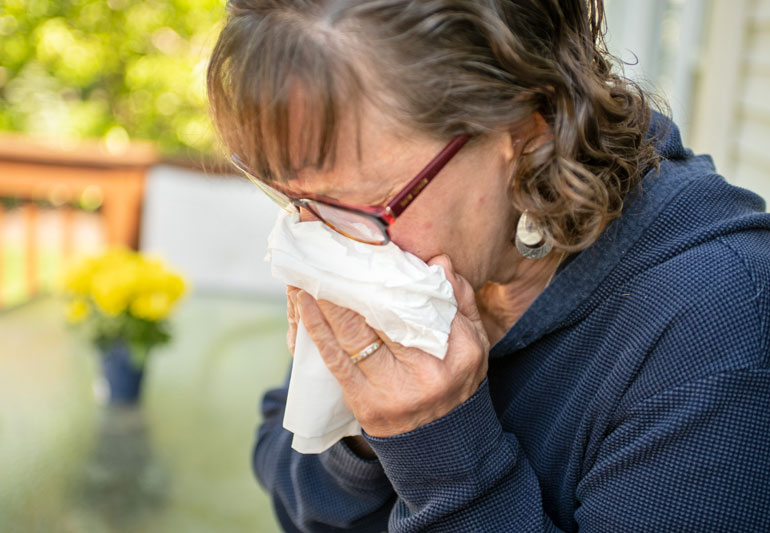

If you have allergies, you know they can make you miserable. But are they a problem for life, or can you grow out of them?
Allergist/immunologist Lily Pien, MD, answers common questions about how allergies work, the importance of testing and what you need to know before choosing a doctor.
How do allergies work on your body?
Allergies are a common problem that researchers believe affect 50 million people in the United States. They happen when your immune system reacts to a foreign substance in your body.
Common triggers include pollen, dust mites, mold, animal dander, insect stings, drugs and food.
In some cases, your body sees the substance as a threat and makes immunoglobulin E (IgE) antibodies that cause allergic cells to release histamine, which, in turn, releases mediators that causes allergic symptoms. Reactions can range from mild to severe, and may include sneezing, itching, hives or respiratory problems.
Can you outgrow an allergy?
Dr. Pien says there’s not a definite answer to that question. She says, “Some individuals can lose clinical symptoms to allergens — which can occur with some medication allergies, such as penicillin. Children can sometimes outgrow food allergies like milk and eggs, and mild reactions to venom from insect stings.”
“There has been a recent shift in how we manage pediatric food allergies,” she says. “Building tolerance by offering increasingly larger amounts of an allergen may help those who are at risk for development of food allergies. Patients need to discuss this strategy with their physicians as this is a new and evolving practice.”
This approach is definitely not something you should try on your own at home. Always work with an allergist, Dr. Pien says.
What if you’re not sure if it’s really allergies?
If you have allergies or suspect that you might, it’s a good idea to work with a qualified allergist who can arrange for proper allergy testing, Dr. Pien says.
Recent advancements in testing materials are yielding more accurate allergy diagnoses, she says. If you suspect you may have outgrown an allergy, talk with your doctor about your diagnosis and find out whether getting retested makes sense.
more recommended stories
 Red Blood Cells Improve Glucose Tolerance Under Hypoxia
Red Blood Cells Improve Glucose Tolerance Under HypoxiaKey Takeaways for Clinicians Chronic hypoxia.
 Pediatric Crohn’s Disease Microbial Signature Identified
Pediatric Crohn’s Disease Microbial Signature IdentifiedKey Points at a Glance NYU.
 High-Fat Diets Cause Damage to Metabolic Health
High-Fat Diets Cause Damage to Metabolic HealthKey Points Takeaways High-fat and ketogenic.
 Can Too Many Antioxidants Harm Future Offspring?
Can Too Many Antioxidants Harm Future Offspring?Key Takeaways High-dose antioxidant supplementation in.
 Human Antibody Drug Response Prediction Gets an Upgrade
Human Antibody Drug Response Prediction Gets an UpgradeKey Takeaways A new humanized antibody.
 Dietary Melatonin Linked to Depression Risk: New Study
Dietary Melatonin Linked to Depression Risk: New StudyKey Summary Cross-sectional analysis of 8,320.
 Type 2 Diabetes Risk Identified by Blood Metabolites
Type 2 Diabetes Risk Identified by Blood MetabolitesKey Takeaways (Quick Summary) Researchers identified.
 Microglia Neuroinflammation in Binge Drinking
Microglia Neuroinflammation in Binge DrinkingKey Takeaways (Quick Summary for HCPs).
 Durvalumab in Small Cell Lung Cancer: Survival vs Cost
Durvalumab in Small Cell Lung Cancer: Survival vs CostKey Points at a Glance Durvalumab.
 Rising Chagas Parasite Detected in Borderland Kissing Bugs
Rising Chagas Parasite Detected in Borderland Kissing BugsKey Takeaways (At a Glance) Infection.

Leave a Comment